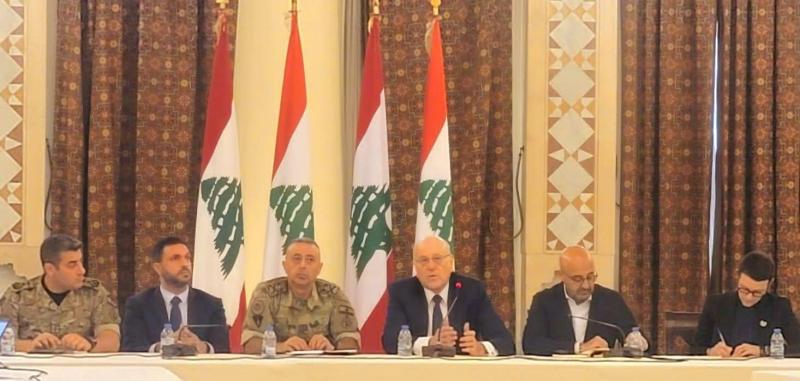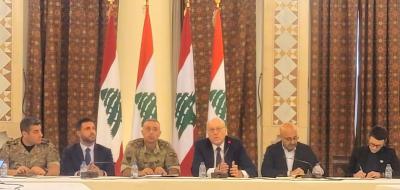Lebanon's caretaker Prime Minister Najib Mikati chaired a meeting today, Friday, at the Grand Serail to follow up on the Cabinet's decision to establish a national emergency plan in anticipation of any security developments. The meeting included Environment Minister Nasser Yassin, who is tasked with coordinating the emergency plan and working with United Nations organizations and relevant bodies, and the Secretary-General of the Supreme Defense Council, Major General Mohamed Mustafa, who heads the National Committee for Disaster and Crisis Coordination in collaboration with the Disaster Risk Management Unit at the Prime Minister's Office.
United Nations organizations, non-governmental organizations, and representatives from various ministries were also part of the National Committee for Disaster and Crisis Coordination, as well as the Lebanese Red Cross. The participation of these organizations aims to ensure alignment between the humanitarian emergency plan, led by the United Nations Humanitarian Coordinator, and the comprehensive readiness and response plan of the Lebanese government.
The meeting included a presentation of the results from the work and meetings held over the past week, discussing available resources for response among various partners, as well as the challenges and required actions to prepare for potential consequences of any aggression and internal displacement, particularly regarding humanitarian affairs.
Discussions specifically included issues related to several sectors, including health, food security, essential aid, logistics and supplies, water and sanitation, protection, alternative shelter, social stability, nutrition, and education. A significant topic raised was the ability to secure urgent and essential humanitarian supplies for the displaced, especially regarding housing, water, and health services, particularly in light of the country's economic situation, and the ability to mobilize the necessary material and human resources.
The steps required to increase and manage Lebanon's stock of wheat, essential materials, fuel, and medical supplies were discussed as a fundamental issue in the event of any aggression and the cessation of shipping and import services. Work and meetings will continue in the coming days to enhance coordination at both central and local levels, as well as to prepare the necessary budgets to strengthen the readiness of sectors and identify available funding opportunities both locally and internationally. Further discussions will ensure the contribution of the humanitarian community to the comprehensive financing plan being developed by the Lebanese government.




